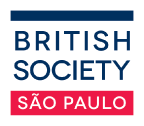The power of a kind word from a physician
/People sometimes talk about the difference between physicians of the old days compared to now, implying that they had a different bedside manner. A kind word and expression of concern from a physician can have a far more powerful effect on patients than was previously thought. A growing body of evidence suggests that offering kindness, empathy, or words of encouragement leads to better patient engagement, a more trusting relationship, better health outcomes, and a less stressful practice for clinicians. Empathy and compassion are not the same, though they are both important. Empathy is the ability to mirror someone’s emotions, feeling their pain. Compassion indicates a desire to take action. According to Dr. Stephen Trzeciak who published Compassionomics: The Revolutionary Scientific Evidence that Caring Makes a Difference together with his colleague Anthony Mazzarelli, MD, there is a strong correlation between kindness and better health. They identified 50 potential mechanisms of action for compassion, ranging from effects on physiology, pain, psychology, and neurobiology, to heath quality experience, and patient and physician satisfaction. They found evidence that compassion can reduce systemic inflammatory pathophysiology, leading to enhanced wound healing and better immune function. Compassion can also stimulate better patient adherence, leading to better control of disease progression and a shorter recovery time. Lack of compassion is particularly troubling for patients with advanced cancer, when medicine has relatively little to offer in terms of reversal of disease, but a lot to offer in terms of relief of suffering. Making eye contact, smiling, and listening actively does not take any more time. People need to feel cared about in order to feel trust. Once they trust, they are much more likely to follow recommendations and feel comfortable in the personal relationship. All physicians are taught “first, do no harm”, which is generally taken to apply to the physical. But there is also a harm caused by not being present.
MICHAEL ROY SMITH, M.D.
MOBILE ECHOCARDIOGRAPHY
E-mail: mrsmith@terra.com.br


